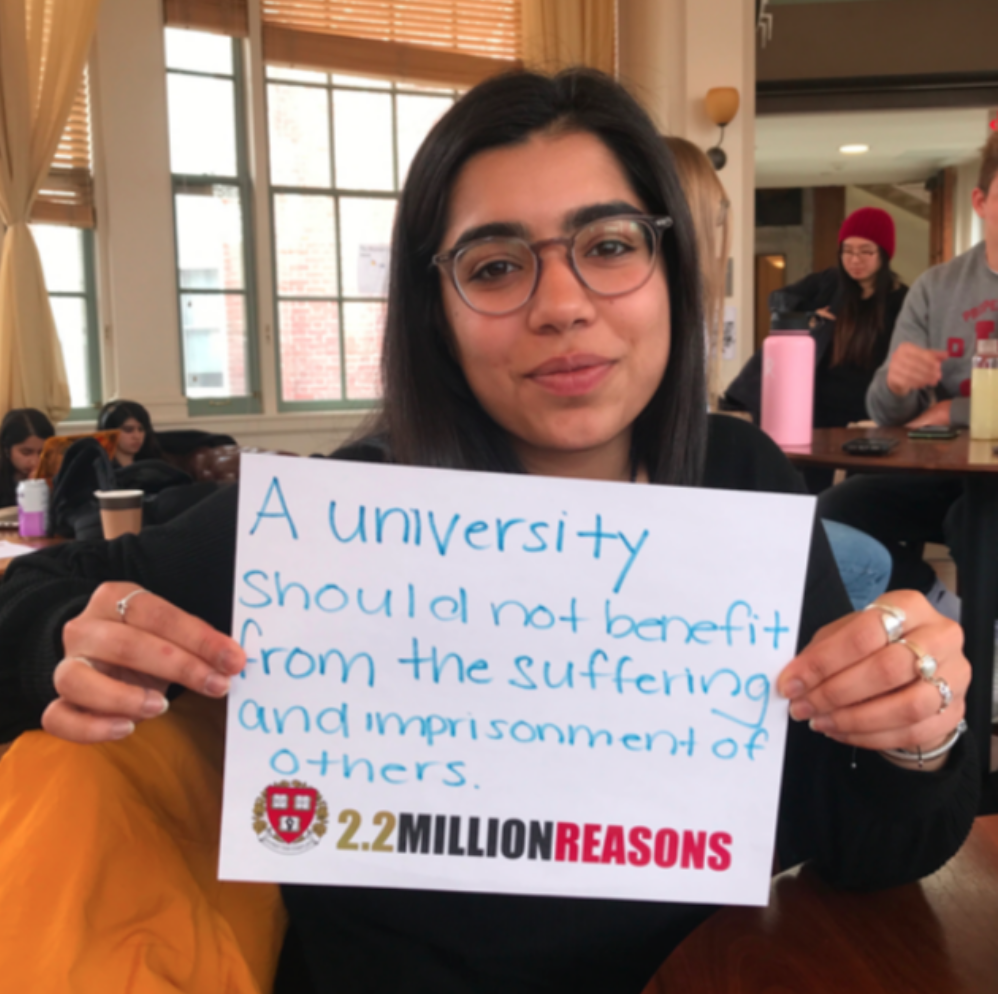
Press Release: Students Across the Nation Call for Universities to Divest from the Prison-Industrial Complex
On April 10th, 2019, student activists at schools across the nation staged various demonstrations against the militarization of the police and the prison-industrial complex. These universities included Harvard University, University of Chicago, Florida State University, Swarthmore, University of Florida, MIT, Yale, Middlebury, Portland State University, Princeton, Grinnell, and Johns Hopkins.
At Harvard University, student organizers projected protest images onto the campus’s Science Center. These included photos of students holding up signs that stated the reasons they urge the university to divest the endowment from prisons and the prison-industrial complex. The action was inspired by Bacow’s repeated statements that he will not support divestment because he only responds to “reason.”
The action follows closely on an April 4th protest. Student organizers, who call themselves the Harvard Prison Divestment Campaign (HPDC), disrupted President Bacow’s talk at the “Conversation with Lawrence S. Bacow” at the Institute of Politics at the Kennedy School. Student protestors sat on-stage, while those in the audience unfurled a “Divest Harvard” banner. Students chanted, “Disclose, divest, or this movement will not rest!” until Bacow and the audience exited the location. Bacow and the audience instead held the talk in a Kennedy School classroom.
“Their behavior tonight does not encourage me to meet with them again,” Bacow claimed. “As I said, I respond to reason, not to pressure, and what we saw tonight was not reason.”
One student wrote, “If I want to practice living my espoused values, then I cannot in good conscience know that my degree was supporting the [prison-industrial complex] and not take action to demand Harvard divest from this inhumane system.” Another wrote, “Divestment from the prison-industrial complex is a MORAL IMPERATIVE.”
Ron L., a Boston University student who is currently incarcerated at Massachusetts Correction Institute at Norfolk, said this of Harvard’s position, “As an incarcerated person who only wants to see rehabilitated people returning to our communities, I am appalled and hurt by the actions of Harvard University. I find it hard to fathom that the powers that be at Harvard are satisfied and overall content with this stance toward incarcerated people.”
Some of the projected photos also included examples of police and prison violence that Harvard’s endowment is invested in. One slide showed a news article about a Ohio police officer who tased an 11-year-old he suspected of shoplifting. Harvard is invested in Axon, which manufactures and sells TASERs. Another article outlined an incident which transpired at an Immigrations Customs and Enforcement (ICE) prison where a detainee had spent 21 days in solitary confinement before committing suicide. Harvard’s endowment is invested in the private prison corporation, CoreCivic, that operates the prison in question through iShares Core S&P Mid-Cap ETF.
In early March, the students hand-delivered a petition with over 3,400 signatures to President Bacow detailing HPDC’s demand. These demands include to 1) Publicly disclose and release endowment holdings in all funds with stock in companies whose existence depends on the prison-industrial complex, and to 2) Apportion a significant percentage of divested funds towards companies, organizations, and initiatives in Cambridge and Boston that are led by people directly impacted by the prison-industrial complex. Bacow refused to accept the petition upon delivery.
Harvard students are part of a larger movement of university students recognizing universities as potentially powerful changemakers for mass incarceration. In 2015, Columbia University announced it would divest from private prison companies following a student-led campaign. At Yale University, the Advisory Committee on Investor Responsibility is currently deliberating its policy on investments in private prisons in response to years of student pressure. This reflects growing skepticism among young Americans of the U.S. justice system’s efficacy and fairness. In a 2016 poll from YouGov, only 23% of Americans under the age of 30 expressed “a lot of trust” in the police and only 20% expressed “a lot of trust” in the courts.
The Care Not Cops student organizing group at the University of Chicago held a rally to demand their university to release the budget for how much money goes towards the private University of Chicago police force. Students for Justice in Palestine at Florida State University held a letter writing station on campus to show solidarity with prisoners on a hunger strike at Holman Correctional Facility. Divest UF of the University of Florida held a “projector bomb” to demand their university divest from fossil fuels and prisons. Middlebury College invited two speakers from prison abolitionist group Black and Pink to speak at their campus. Penn State organizers released a statement detailing their new student group “Disarm PSU.”

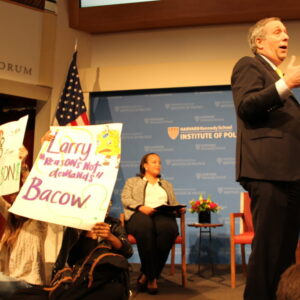
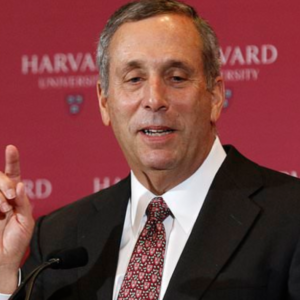
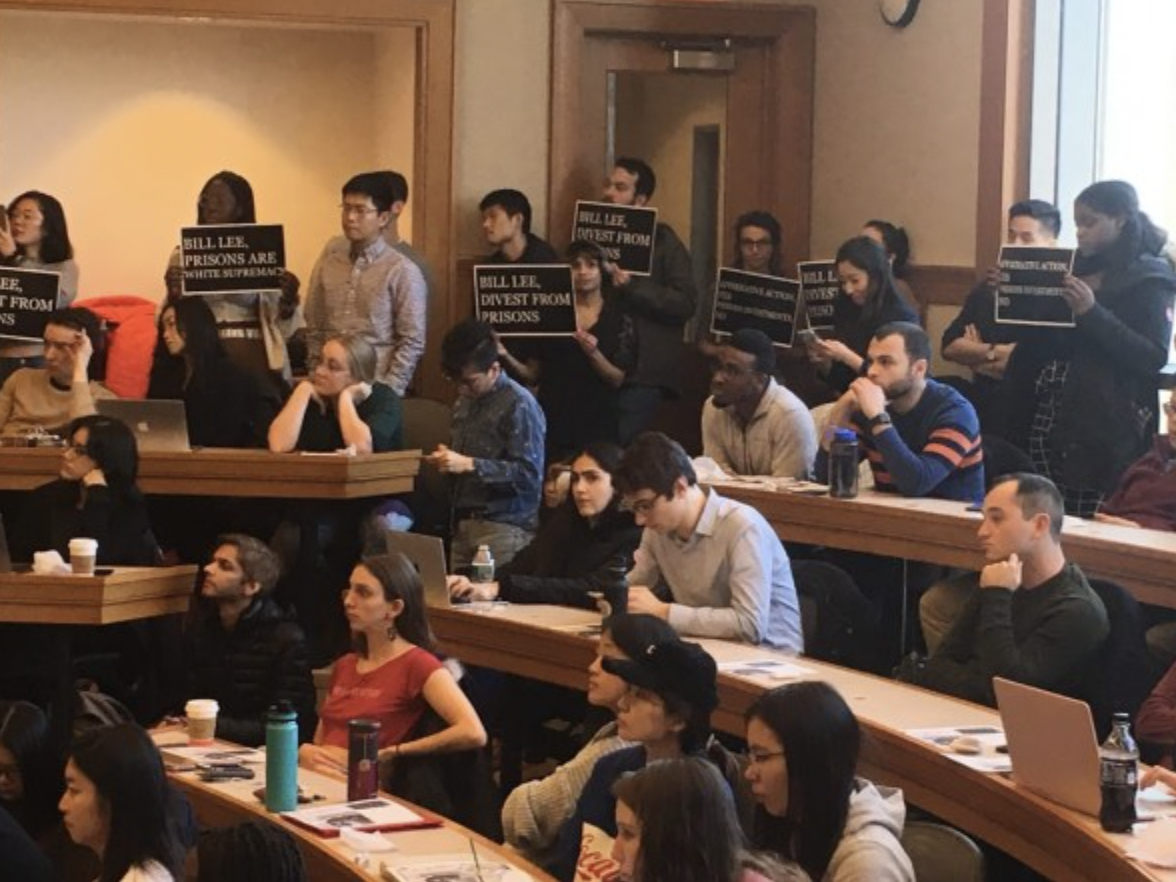
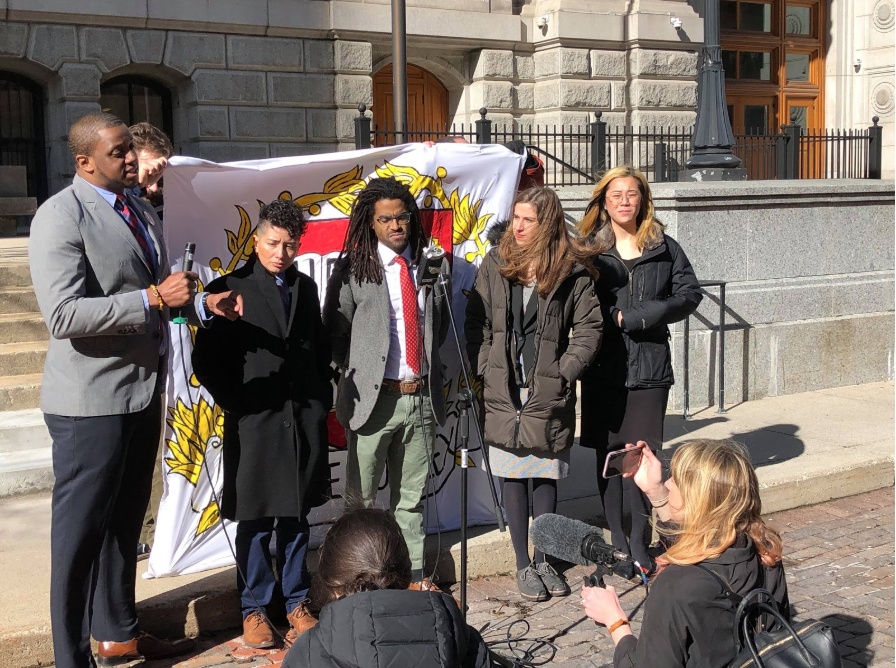
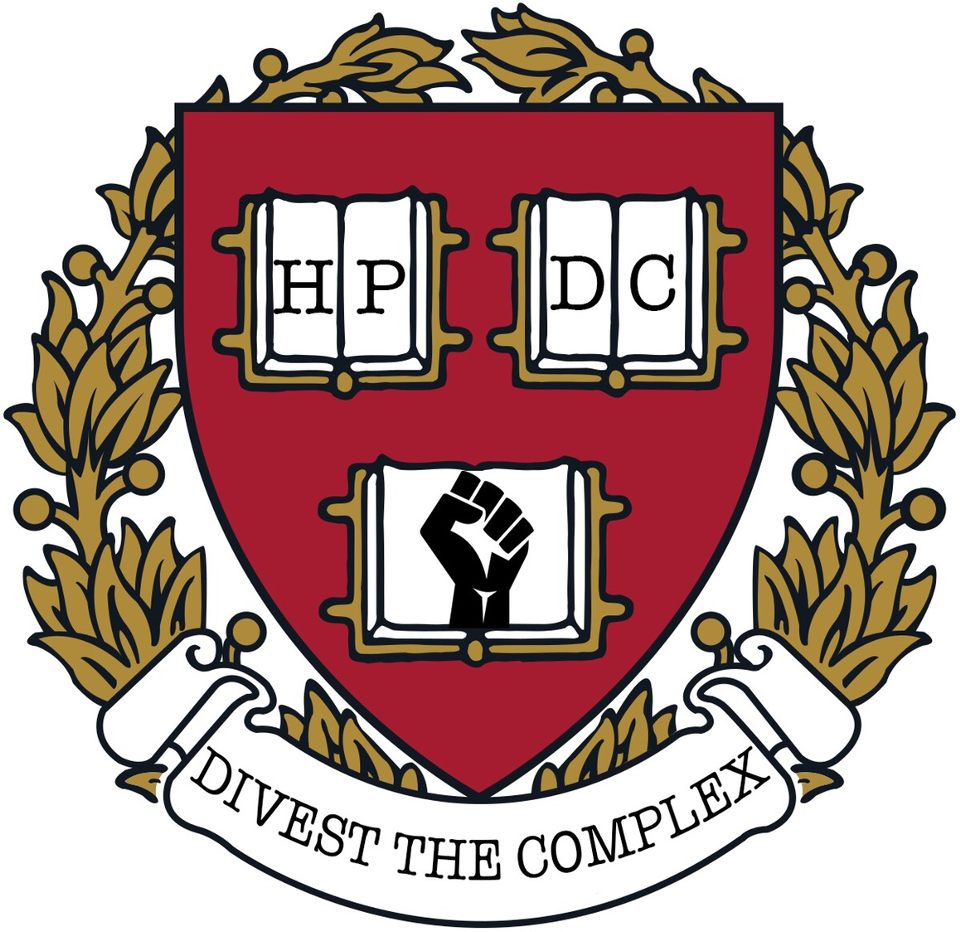
Leave a comment